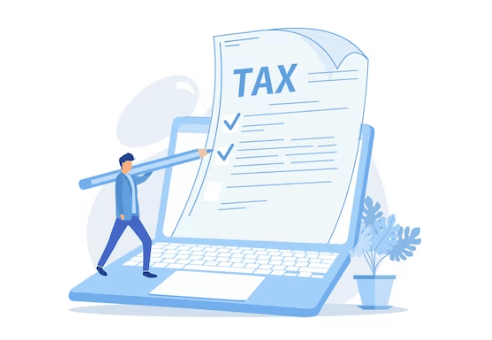Are you looking for a career change or simply want to add more skills to your resume? Becoming a tax preparer in Florida might just be the perfect path for you.
It is a lucrative and in-demand profession and offers flexibility and the opportunity to work with a diverse range of clients.
But how exactly do you become a tax preparer in Florida? In this article, we will guide you through the critical steps from being a novice to becoming an expert in the tax preparation field.
Understanding The Role
Before diving into the process of becoming a tax preparer, it is crucial to understand what the role entails. A tax preparer is responsible for preparing and filing tax returns for individuals or businesses.
This includes gathering financial information, completing tax forms, and ensuring compliance with all relevant laws and regulations.
Education And Training
While a college degree is not required to become a tax preparer in Florida, pursuing some form of education or training is highly recommended.
Several options are available, such as enrolling in a tax preparation course or obtaining a certification from a recognized organization.
Many community colleges and vocational schools offer tax preparation courses covering tax laws, forms, and software.
These courses can range from a few weeks to a few months and are designed to provide students with the necessary knowledge and skills to become a tax preparer.
Another option is to obtain a certification from a reputable organization such as the National Association of Tax Professionals (NATP) or the National Society of Accountants (NSA).
These certifications require passing an exam and maintaining continuing education credits to stay up-to-date with changes in tax laws.

Registering With The IRS
To legally prepare taxes in Florida, you must register with the Internal Revenue Service (IRS). This involves obtaining a Preparer Tax Identification Number (PTIN) and completing the necessary paperwork. The PTIN is a unique number assigned to tax preparers for identification purposes.
Additionally, you may also need to apply for an Electronic Filing Identification Number (EFIN) if you plan on e-filing tax returns. E-filing is the preferred method of filing taxes, and having an EFIN will allow you to do so on behalf of your clients.
Obtaining A Business License
If you plan on starting your own tax preparation business, obtaining a business license from the Florida Department of Revenue is important.
This will ensure that you comply with all state regulations and can legally operate as a tax preparer.
Gaining Experience
As with any profession, gaining experience is crucial to becoming an expert in the field. You can start by working under an experienced tax preparer or at a tax preparation firm. This will provide you with hands-on experience and allow you to learn from seasoned professionals.
Another option is volunteering with organizations offering free tax preparation services, such as the Volunteer Income Tax Assistance (VITA) program.
This will not only give you valuable experience but also allow you to make a positive impact in your community.
Staying Updated With Tax Laws
Tax laws are constantly changing, and tax preparers need to stay updated with these changes. This includes attending seminars, workshops, or webinars to learn about any new laws, regulations, or updates in the tax code.
Maintaining your knowledge and skills as a tax preparer is important to provide quality services to your clients.
Building A Client Base
As you gain experience and establish yourself as a tax preparer, building a strong client base is important. This can be done through networking, word-of-mouth referrals, and marketing strategies such as creating a website or social media presence.
Providing excellent service to your clients and building a strong reputation will help you retain existing clients and attract new ones. Happy clients are more likely to refer their friends and family to you, which can lead to even more business opportunities.
Continuing Education
To maintain your status as a tax preparer in Florida, you are required to complete continuing education credits. This ensures that you stay up-to-date with changes in tax laws and regulations.
The number of CE credits required varies depending on your certification, but it is important to fulfill this requirement to maintain your credibility as a tax preparer.
Conclusion
Becoming a tax preparer in Florida is a process that requires education, training, and experience. It is important to understand the role, register with the necessary organizations, and continue learning to become an expert in the field.
With dedication and hard work, you can turn your novice status into expertise and build a successful career as a tax preparer in Florida. So why wait? Take the first step towards this exciting and rewarding career path today!
At Keystone Tax Solutions, we pride ourselves on providing top-notch tax preparation services to our clients in Florida.
Our team of experienced and knowledgeable tax preparers will guide you through the process, ensuring accuracy and compliance with all relevant laws.
Contact us today to learn how to start a tax business in Florida and how we can help you with your tax preparation needs.

